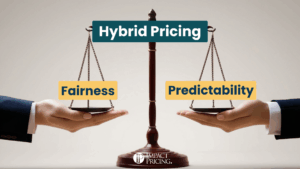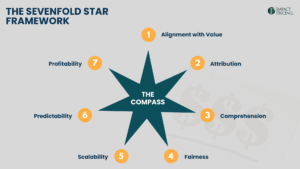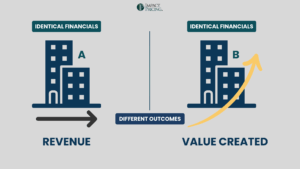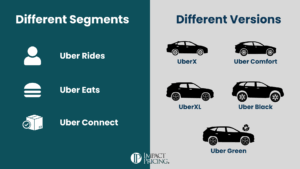You can listen to the full audio version of this blog we call — Blogcast.
It pains me to say this, but it’s true: high prices lose sales. As a pricing aficionado, I’m always pushing for higher prices, so it’s my fault (and yours if you push for higher prices too.)
First, let me throw myself at the mercy of the court. Every time you lose a sale, it’s because the price was too high. You see, you could have lowered your price–to zero if necessary–and won the deal. That is proof the price was too high. That means for every deal you lose, price was to blame.
Now, please allow me to defend myself. Here are two arguments in my defense.
First, every deal you lose is also the fault of value. Pricing and Value are equally at fault. Buyers trade money for value. If they don’t perceive enough value, they won’t buy your offer. It’s possible that your product didn’t offer that buyer enough value. It’s also possible that your sales and marketing efforts didn’t communicate the value well enough that the buyer understood and believed it.
Before blaming and reducing the price, I recommend you focus very hard on value. If you don’t deliver enough value, improve your product or focus sales on the market segment that gets the most value from your product. If your product is already good enough, focus on communicating your value. Improve your value communication before decreasing your price.
My second defense: Maybe you want to lose those deals. Buyers willing to pay more (meaning buy from you at higher prices) are often much better customers. They get more value from your product. They go into it looking for solutions to problems, not deals. They are less likely to ask for free support. These are higher-margin, lower-cost customers. These are your ideal customers. These are the ones you want to serve. When you spend your resources serving the needy, price-sensitive customers, they aren’t available to serve your best customers.
Of course, you can have a business model that competes on price, but that’s not a fun place to play. Your innovation is about cost cutting, not added value to customers. Assuming you are a business that believes you offer more quality, features, and/or capabilities than your competitors, then you should get paid for it. You should charge higher prices. Will you lose some business? Probably. But if you improve your understanding of and ability to sell value, you will lose many fewer. And those you lose, you probably didn’t want anyway.
If this resonates with you and you’d like some help, feel free to contact us or share your comments on the LinkedIn post.
Now, go make an impact!
 Tags: cost, lower cost, price, pricing foundation, pricing skills
Tags: cost, lower cost, price, pricing foundation, pricing skills













